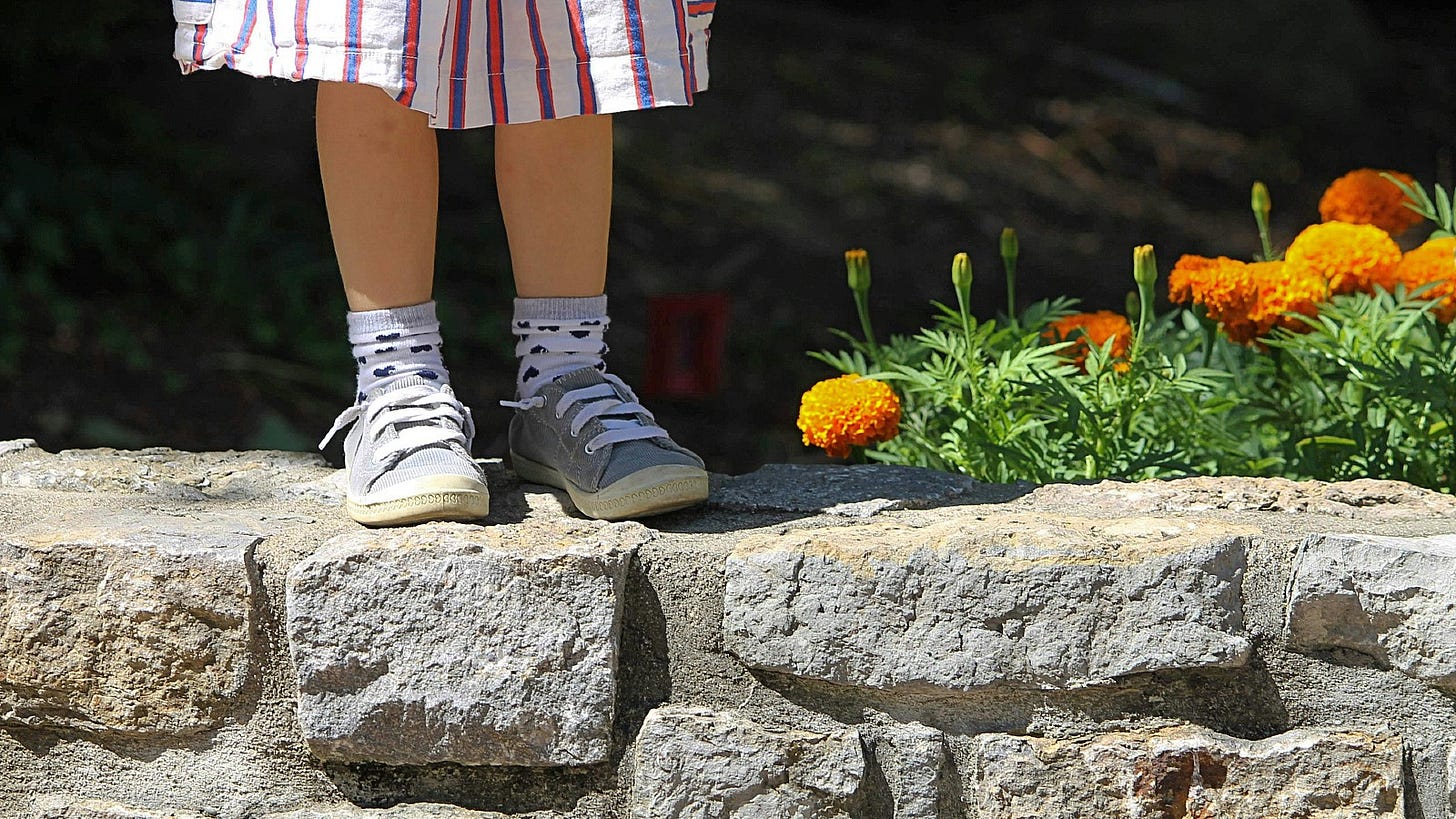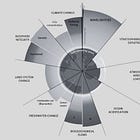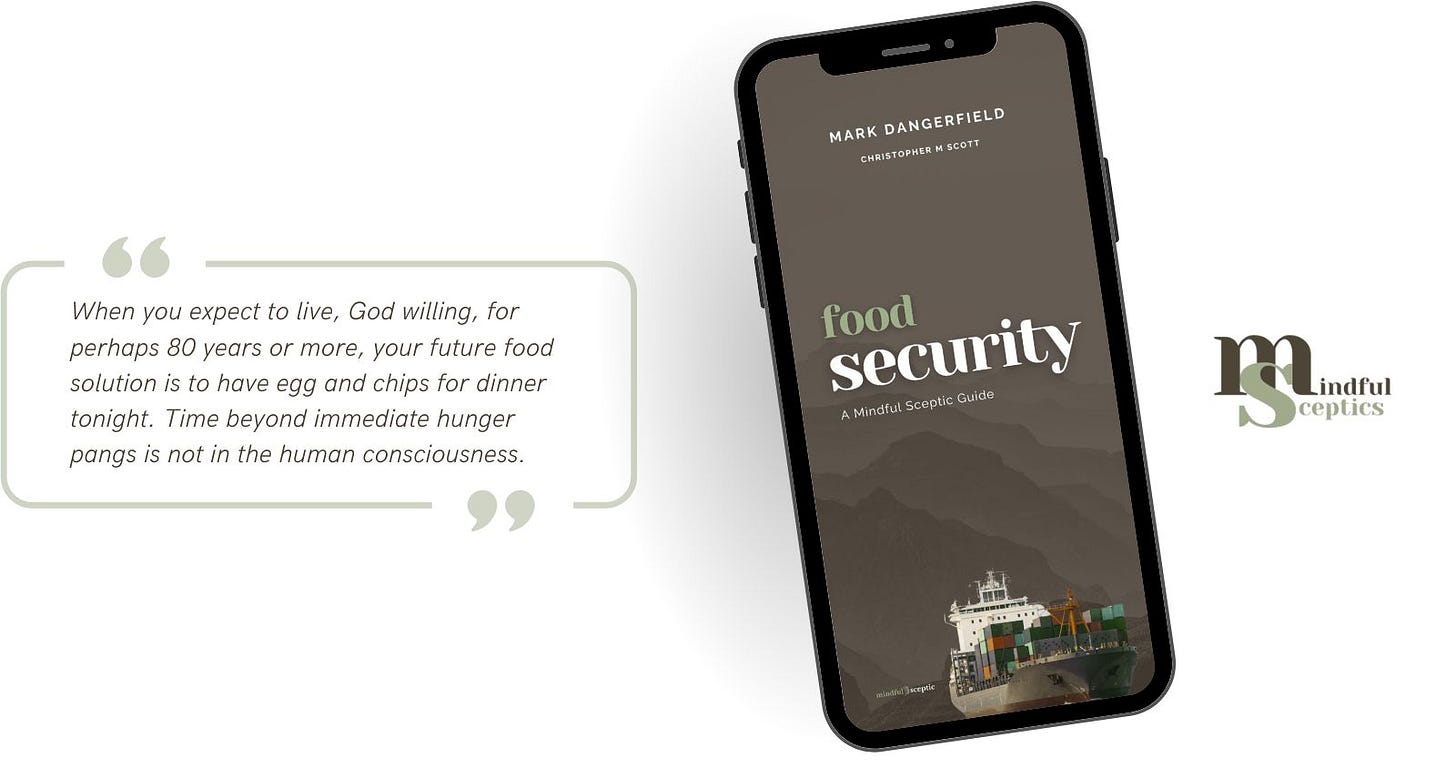What We Know And Why It Matters
Light Bulbs and Learning to Save the World
Most of the time, I know more and less than I think I do.
This puts me in a precarious position, straddling the wall of confidence with the prospect of a viral YouTube fail video chuckling away at me should I fall off.
Yet with a bit of courage, much can be done.
I proclaim some knowledge and backflip off the wall, landing lightly on my feet.
Bouyed, I pontificate again, only this time I overreach, and a less-than-polite social media barrage corrects me. It’s a daily dance.
The question I grapple with all the time is this…
Should I know more?

Are you happy with what you know?
Early on, when I first met my wife, she asked me to replace a light bulb in her flat. It was one of those tricky recessed numbers that, at the time, freaked me out.
I've never been a fan of electricity, at least not when you must work with it. I dithered about fixing the light bulb, and my wife remembered that as getting involved with someone impractical.
Not what she wanted to know.
She's happy enough with her handyman now. I can fix most things with the tools in my basement workshop, but I also know when to bring in more experienced people to make sure I don't electrocute myself.
There are a couple of aspects to this anecdote.
One is that, in many instances, we're better at doing things than we realise.
Whilst I feared electricity, I could do quite a bit just through common sense and knowing where the master switch was located. Changing the light bulb has to be right up there with about anything anybody can do.
Over the years, I've been able to build and fix things I wouldn't have ever imagined, from the washing machine to the food mixer. I have YouTube to thank for a whole bunch of tutorials. That marvellous place where folk give freely of their expertise to allow the lesser mortals the chance to please their spouse.
The other thing the light bulb story brings to mind is what we should be able to do.
What should be in our toolbox, skillset, and most importantly, our knowledge databases?
What is it that we should know at this point in human history?

What should we know?
As a trained scientist with the privilege of a career as an ecologist, I am biased towards environmental issues and believe that more people should know a lot more about them than they do.
Here is a list in alphabetical order of the issues that conventional wisdom says are important for us to know about, with a brief explanation of each…
Air pollution causes millions of premature deaths annually and remains a serious public health issue, particularly in developing nations and urban areas. This issue is closely connected to climate change since many sources of air pollution also emit greenhouse gases.
Biodiversity loss is accelerating at an alarming rate, with species going extinct at hundreds of times the natural background rate. Major drivers include habitat destruction, pollution, climate change, and resource overexploitation. This threatens ecosystem stability and the many services nature provides to humans.
Climate change remains one of the most pressing challenges, driven by greenhouse gas emissions from burning fossil fuels, deforestation, and industrial processes. This is causing rising temperatures, more extreme weather events, sea level rise, and disruption of ecosystems.
Deforestation continues to be a significant concern, particularly in tropical regions. We lose about 10 million hectares of forests annually, impacting biodiversity, indigenous communities, and the planet's ability to sequester carbon.
Ocean health is deteriorating due to plastic pollution, ocean acidification, overfishing, and coral reef destruction. The oceans absorb about 30% of human CO2 emissions, leading to increasing acidification that threatens marine life.
Water scarcity affects billions of people, and climate change, pollution, and poor management worsen it. Many significant aquifers are being depleted faster than they can replenish.
All these are important, and they sound crucial. But out in front of my list by a country mile is Growing Enough Food and the related social issue of Food Security.
We desperately need to know how much food we need, where it is required, and a whole raft of ecological knowledge about how food is grown and raised.
We need to know what we're putting in our bodies to ensure our health and that we feed everyone well.
We need to know what makes good food and how to produce and distribute it.
Determined that food production should get more attention, Chris and I have devoted three Mindful Sceptic Guides to the issue.

What should we know about the human enterprise?
Keeping 8 billion humans alive and well requires staggering resource use, infrastructure and coordination. It is a miraculous achievement.
And yet, most people have little idea of how it happens.
The conventional wisdom suggests that the average person should understand at least the rudiments of…
Basic economic interdependence of our daily lives in the West relies on complex supply chains, trade networks, and division of labour that connect people across the globe. Understanding that most products we use involve resources, labour, and processes from many different places and people.
Resource consumption and environmental impact of modern lifestyles, especially in developed nations, require significant extraction (energy, materials, water, etc.) and generate waste and pollution that affect natural systems. We are all consumers.
Social organisation and governance create and maintain a social contract through various institutions (governments, businesses, civil society) and the importance of civic participation and engaged citizenship—basic awareness of how policies and collective decisions shape communities.
Technology and infrastructure dependencies enable modern life (electricity, water, transportation, communications), yet these systems are vulnerable. Understanding that technological advancement brings both benefits and potential risks.
Global interconnection means that events and decisions in one part of the world can have ripple effects elsewhere through economic, environmental, and social links. Recognition that significant challenges like climate change and inequality require coordinated international action.
Cultural diversity and human needs are the same but different. People share fundamental needs and aspirations despite different cultures and ways of life.
Historical context is necessary to understand that human civilisation continues to evolve and that we have agency in shaping its future direction.
It seems we know less than we think on these matters.
Studies consistently reveal that the general public's scientific and environmental literacy remains surprisingly low. Many people struggle to explain even basic concepts about climate change or how ecosystems work, and there's often a startling disconnect between our daily consumption and our understanding of where resources come from or where our waste goes.
Many people don’t grasp fundamental economic concepts like inflation or interest rates. Despite living in an interconnected global economy, most people are unaware of the complex supply chains that bring products to their doors.
Civic knowledge tests regularly reveal that many people have a shaky grasp of how their government institutions function or how laws are made. Knowledge gaps are particularly notable when it comes to taxes and public spending, even as people complain about paying them.
The infrastructure that supports modern life remains largely invisible to most people until it fails. Research shows that few can explain how power grids work or how water reaches their taps, and there's limited awareness of how vulnerable these systems can be to disruption.
Perhaps most concerning is our understanding of global interconnections. Studies indicate that many people significantly underestimate how actions in one part of the world affect others, and there's often poor comprehension of how international institutions shape our collective future.

What we say is important
When we are asked about the human enterprise—as happens in democracies, when the politicians present their platform, and the people go out and vote for the one they prefer—the list of issues is very different.
Issues that typically dominate electoral discussions in Western democracies are…
Economic concerns tend to be paramount, especially the cost of living and inflation, jobs and unemployment, economic growth and business conditions, housing affordability and availability, taxation levels and government spending, and income and wealth inequality.
Healthcare consistently ranks as a significant priority, typically healthcare system funding and access, wait times for medical procedures, mental health services, elder care, drug prices and pharmaceutical policy.
Social security and welfare rank highly with concerns for pension/retirement systems, social benefits and welfare programs, support for families and children, and disability support services.
Environmental issues have become increasingly prominent and are recognisable from my earlier list… Climate change policy, environmental protection, energy policy and prices, and transition to renewable energy.
Immigration and demographics often make the list through immigration levels and policy, integration of immigrants, border security, population aging, and labour market needs.
Public safety and security can move up and down the list with crime rates and policing, national security, terrorism concerns and drug policy all significant.
Education is important for anyone with a family, with school funding and quality, higher education costs, student debt, skills training, and workforce development typically making the list.
The relative importance of these issues can vary significantly based on current events, economic conditions, and specific national contexts. For example, during economic downturns, economic issues tend to become even more dominant, while during periods of international tension, security issues may rise in prominence.
But here is the question…
What distinguishes these issues in elections from those on the list of what we should know about human enterprise?
Election Issues Only Tell Half the Story of How Our World Works
The first striking difference between issues that dominate elections and what we should know about human enterprise is in the scope and timescale.
Civilisation operates and impacts the world in the long term through systemic processes that unfold over decades or centuries—things like resource depletion, climate systems, or the evolution of economic structures.
In contrast, electoral issues focus on immediate, tangible concerns affecting people's daily lives, such as jobs, inflation rates, or healthcare costs.
Civilisation-level aspects involve intricate webs of interconnected systems where cause and effect are often separated by time and space. For example, consumer choices in the US ripple through global supply chains to affect ecosystems halfway around the world.
The level of personal agency also differs markedly.
Electoral issues are framed around choices voters can influence through ballot-specific policies or programs governments can implement. The broader civilizational processes often operate beyond the scope of any single election or policy decision, requiring coordinated action across nations and generations.
But here is the big one
Electoral issues focus on immediate personal concerns, such as your job, healthcare, children's education, and your safety.
Civilisation-level understanding requires grappling with abstract systems and distant impacts that can feel removed from daily life, even though they ultimately shape everything about how we live.
While electoral issues often fragment into competing partisan positions, the fundamental workings of human civilisation represent shared realities that affect everyone, regardless of political stance.
All this is a worry.

What does a mindful sceptic think?
As an ecologist, I know about the intricate web of systems that keep our civilisation running, especially the delicate dance between resource extraction and planetary boundaries, the complex feedback loops in our food systems, and how our economic choices ripple through ecosystems half a world away.
I stand confidently on this wall as I have a career’s worth of knowledge and experience behind me.
Yet when I step into the voting booth, I'm confronted with a much narrower set of concerns… Will my taxes go up? How's the local hospital waiting list? What about the price of gas?
This disconnect isn't accidental.
Our brains evolved to prioritise immediate, personal threats and rewards. Worrying about next month's electricity bill is much easier than grappling with long-term soil degradation or biodiversity loss.
But here's where mindful scepticism offers a valuable perspective.
A mindful sceptic recognises both realities as valid but incomplete. Of course, we must address immediate concerns about healthcare, education, and economic security, which affect real people's lives today.
However, we must also understand how these immediate concerns nest within larger, longer-term systems that ultimately determine whether we can sustain our civilisation.
The mindful sceptic asks how we make long-term, systemic issues feel as urgent and relevant as our immediate concerns.
Part of the answer lies in connecting the dots.
That rising food price you're worried about? It's intimately connected to soil health, climate patterns, and global supply chains.
What are your concerns about jobs? They're inseparable from the broader transition to a sustainable economy.
But perhaps most importantly, a mindful sceptic understands that this isn't an either/or choice.
We can—and must—hold both perspectives simultaneously.
We need to address immediate needs while keeping an eye on the horizon. As my take on the old saying goes, we must think locally and act globally, even as we think globally and act locally.
After all, what good is solving today's problems if we're undermining tomorrow's foundations? And conversely, what use is long-term sustainability if we can't meet people's basic needs today?
A mindful sceptic strives to manage this tension creatively, always asking how to address immediate concerns that strengthen rather than undermine the systems we depend on.
It's not an easy balance, but it might be the most critical question of our time.
Coming soon… is a free ebook that explains five cornerstones that a mindful sceptic has etched into their curiosity and critical thinking.
Mindful Momentum
The Supply Chain Challenge
Start with one item in your kitchen—coffee, chocolate, or bananas are perfect.
Spend 5 minutes daily for a week tracing its journey from source to your home. Draw the map, research the producers, and understand the transportation networks.
When you shop next week, your mindful awareness of these connections will transform a simple purchase into a window into global systems. Notice how this product connects to climate, economics, social justice, and infrastructure.
Here is another one…
The Generational Knowledge Bridge
Choose one environmental issue that concerns you. Interview three people from different generations about it - perhaps a teenage activist, a middle-aged farmer, and a retired scientist.
Ask each the same questions…
What worries you most about this issue?
What solutions do you see?
What barriers prevent action?
Create a simple diagram showing how their perspectives overlap and differ. Notice how timescales and priorities shift across generations.
Why not share what you found.
Key points
A profound disconnect exists between what we focus on in elections and what we must understand about human civilisation. While electoral issues centre on immediate, personal concerns like healthcare and taxes, the fundamental systems that sustain our society—from food security to resource management—often remain invisible until they fail.
Modern civilisation's challenges require understanding complex, interconnected systems that operate across decades and continents. However, our democratic processes tend to reduce these to simplified cause-and-effect relationships that feel more manageable but miss crucial systemic connections. This reduction often leads to short-term solutions for long-term problems.
A particularly concerning gap exists in our understanding of food security and production. Despite having unprecedented scientific knowledge about human health and nutrition, we face increasing rates of obesity alongside persistent malnutrition. This paradox reveals how our sophisticated understanding of individual components often fails to translate into effective system-level solutions.
The role of a mindful sceptic is to bridge the gap between immediate concerns and systemic understanding. Rather than choosing between short-term and long-term thinking, mindful sceptics strive to understand how immediate actions connect to broader systems, maintaining awareness of both personal and collective implications in decision-making.
You Might Also Like
Curiosity Corner
Here is what this issue was about…
While election cycles drive us to focus on immediate concerns like healthcare and taxes, the fundamental systems that keep 8 billion humans alive require a deeper understanding that transcends political timelines—and mindful scepticism might be our best tool for bridging this critical knowledge gap.
This better question section is a little different this time, as I just made a list of questions that go back to the number one priority on my list of concerns… food security.
Are we happy that we have an extraordinary understanding of the human body and yet rates of obesity are climbing and malnutrition still exists all around the world?
Are we happy that our knowledge of the health system and human health is biased towards specific cause-and-effect solutions rather than a whole-body option?
Do we know what's best for our individual and collective nutrition?
Do we know where food comes from?
What happens out there on those rural properties that are rearing livestock and growing crops that are turned into our food?
Do we know if farmers are growing the right things in the right places?
Do we know if they are growing food sustainably or mining the soil for carbon and nutrients?
Are you happy you know enough about them?
In the Next Issue
Can a Frog and Some Lily Pads Change How You Think About Everything?
Next week, I'll share a puzzle that transformed my understanding of global economics.
It starts in a peaceful garden pond but ends up challenging everything we believe about progress, prosperity, and the future of human civilisation.
Warning: this deceptively simple story might permanently alter how you see the world.
Or if you prefer…






I like the distinction you made between long term or collective issues and vision versus short term election ones. I think that’s one of the goals of the assault on our nervous system these days, to keep us focused on the short term, survival, and fear.
Kudos on such a wise and important essay, John! 👏 I'm restacking it for wider exposure.